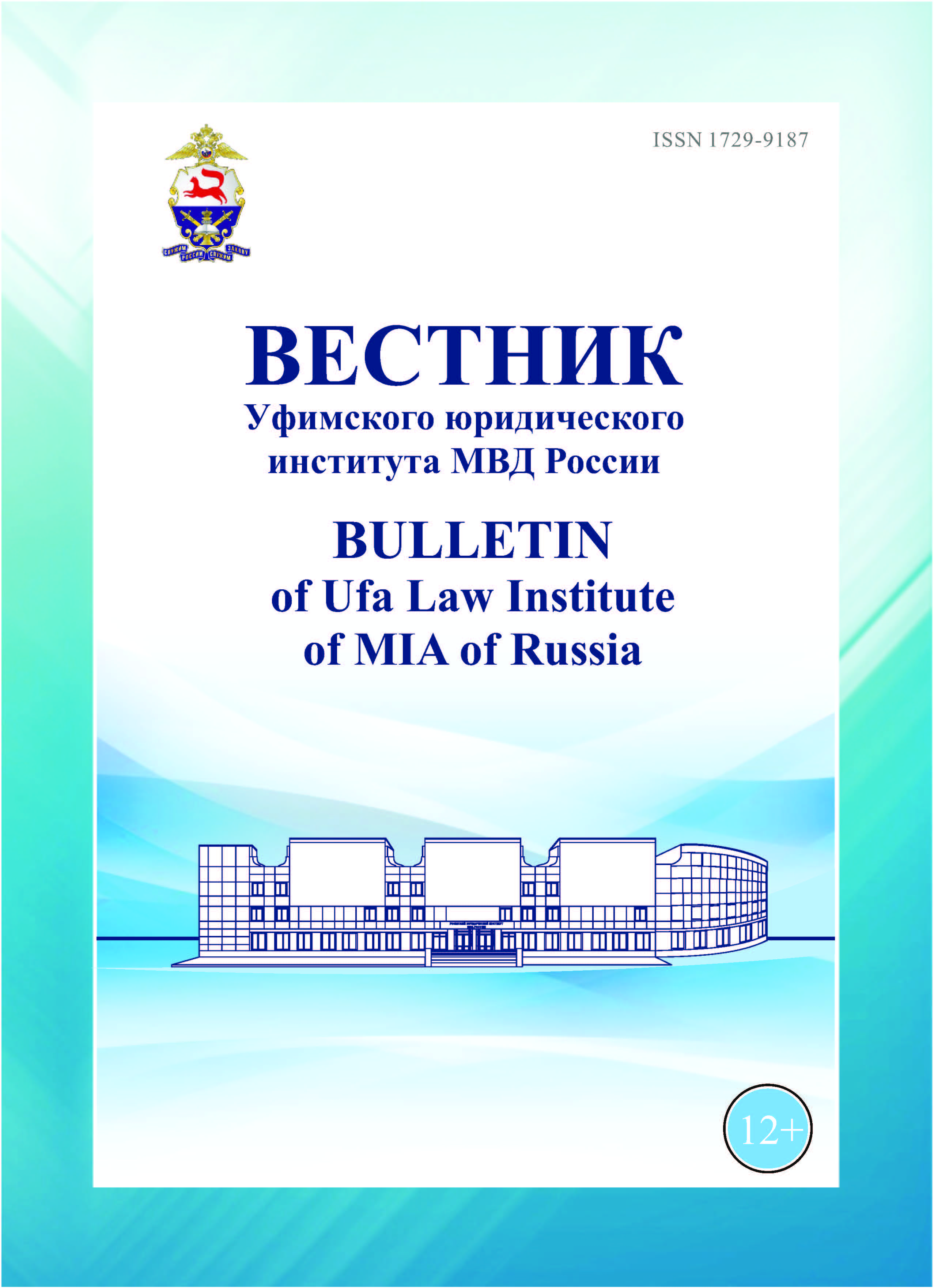Russian Federation
UDC 378
The authors investigate the problem of law enforcement officers speech behavior in the structure of legal discourse, based on a conceptual position that one of the tasks of a police officer, first of all, is to achieve communication goal contacting with citizens in order to solve professional tasks successfully. It is obvious that communicative failure can often lead to various difficulties, and, conversely, communication process that is well-organized becomes a component of the effective organization of professional activity. Thus, the authors believe that the implementation of the discipline «Fundamentals of Russian sign language» into unified training programs is an element of the quality improving process of the law enforcement officers professional training and put forward the thesis that the formation, development and improvement of professional competence of a police officer is a natural process of changing professional and personal qualities during training in educational organizations of the Ministry of Internal Affairs of Russia, necessary for the implementation of law enforcement activities in accordance with modern social demand.
russian sign language, professional competence, speech behavior, communicative task, dacty lology, sign language
1. Zaitseva G. L. Gesture speech. Dactylology: textbook. for stud. higher textbook establishments. M.: Humanit. ed. center VLADOS, 2000. 192 p. (In Russ.)
2. On the social protection of disabled people in the Russian Federation: Federal Law of November 24, 1995 No. 181-FZ // Collection of Legislation of the Russian Federation.1995. No. 48. St. 4563 (revised April 24, 2020). (In Russ.)
3. Trofimova G. S. Pedagogical communicative competence: theoretical and applied aspects: monograph. Izhevsk: UdGU, 2012.116 p. (In Russ.)
4. Podlasy I. P. Pedagogy: a textbook for universities. Moscow: Yurait Publishing House, 2020. 576 p. (In Russ.)
5. Kitaygorodskaya G. A. Methods of intensive teaching of foreign languages: textbook. allowance. M.: Higher school, 1986. 103 p. (In Russ.)
6. Kitaygorodskaya G. A. Intensivnoe obuchenie inostrannym yazykam. Teoriya i praktika. M.: Vysshaya shkola, Noc «Shkola Kitaygorodskoy», 2009. 227 s.
7. Posidelova V. V., Horoshko E. Yu. Vladenie zhestovym yazykom kak element realizacii kommunikativnoy kompetencii sotrudnikov policii // Vestnik Krasnodarskogo universiteta MVD Rossii. 2020. № 1 (47). S. 117–121.
8. Comenius Ya. A. Great didactics. M., 2012. 321 p. (In Russ.)
9. Kitaygorodskaya G. A. Intensive teaching of foreign languages. Theory and practice. M.: Higher School, Nots «School of Kitaygorodskaya», 2009. 227 p. (In Russ.)
10. Posidelova V. V., Khoroshko E. Yu. Knowledge of sign language as an element of the implementation of the communicative competence of police officers // Bulletin of the Krasnodar University of the Ministry of Internal Affairs of Russia. 2020. No. 1 (47). P. 117–121. (In Russ.)









